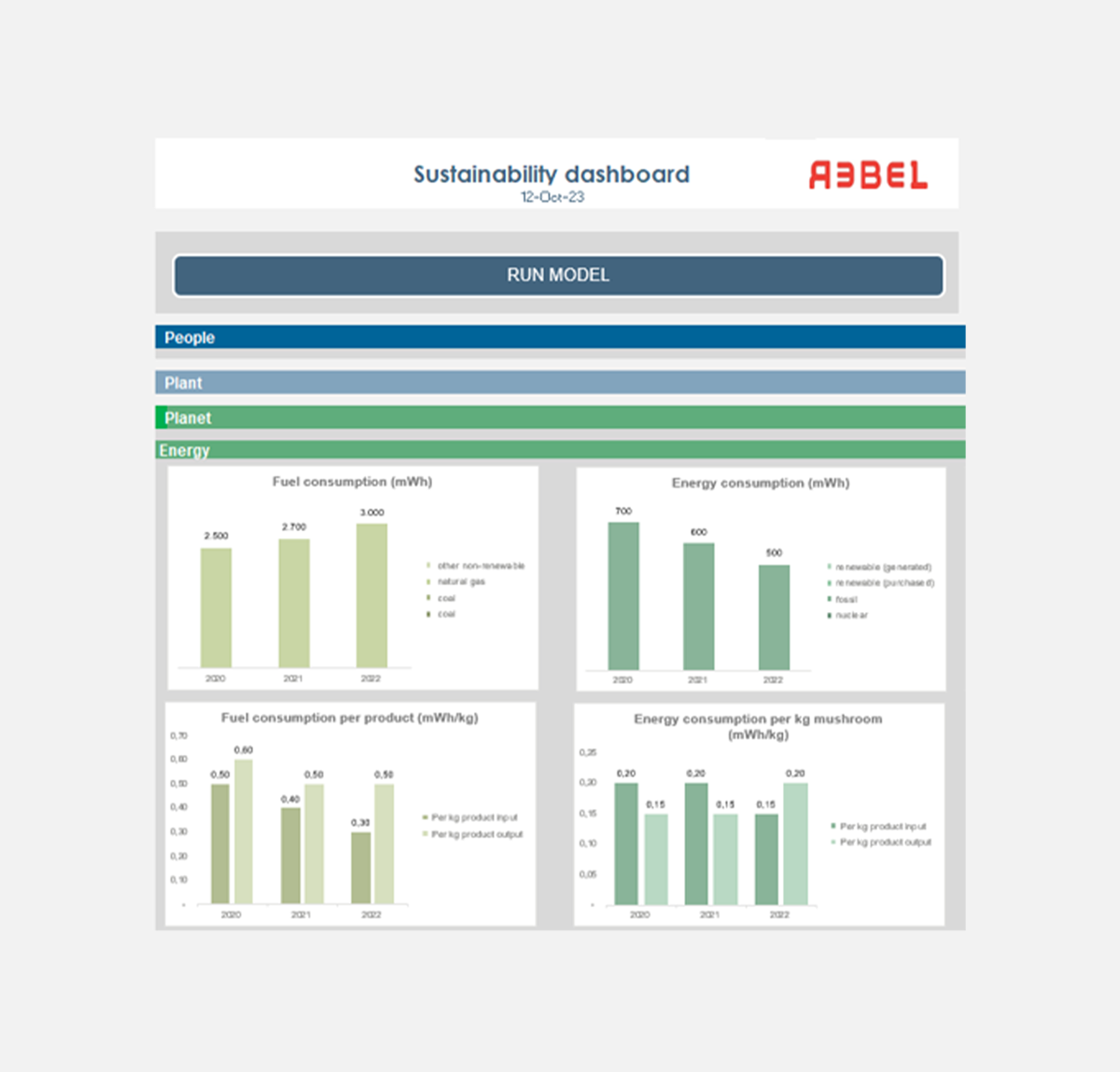Sustainability of global leader in frozen mushroom production
EU legislation around sustainability reporting (CSRD) was adopted in July 2023. Around 10,000 organisations, from medium to large, will be required to come up with an integrated report by 2026. This may feel like an administrative obligation, but with the right approach, it provides tools for a strong, future-proof business.

The challenge
Champi’mer is a family-run business with a down-to-earth corporate culture. Everyone who works there is directly involved in the operation. The challenge was to use a practical approach with the CSRD requirements in mind to get Champi’mer to understand strengths & weaknesses and risks & opportunities, and then to turn these into strategic spearheads, goals and action points that are monitored and managed via a dashboard. In short, to arrive at an approach that mitigates risks and capitalises on opportunities, with reporting as the capstone rather than the starting point.
The approach
Rebel started with desk research: what environmental, social and governance (ESG) issues are at play in the sector? Where is the focus among competitors? What themes are at play in the chain (from grower to consumer)? This was followed by a tour of the plant to identify possible themes from production with your own eyes and ears. This resulted in a longlist of themes.
These formed part of the starting point for a number of interviews with employees from a variety of departments and discussions with suppliers and customers. We talked about strengths and weaknesses as well as opportunities and threats. Employees openly shared their views on sustainability; we experienced energy to take steps. The primary goal of our approach: to bring people along from the first step to avoid the ‘not invented here’ syndrome at all costs.
The result of the above was a clear picture of the themes material to Champi’mer and, above all, a number of diverse starting points for the strategy. Rebel elaborated these into a draft strategy with four strategic lines. During a meeting with the management, this was tested and refined.
In the meantime, we have been working on a dashboard in line with the CSRD’s ESRS guidelines. This dashboard allows Champi’mer to quickly gain insight into how they are doing on the (material) CSRD themes that are important to them. These include scope 1, 2 and 3 emissions, for example, but also social themes such as sick leave. The primary focus of the dashboard was on the ESRS guidelines. The dashboard resulted in insights such as: what is actually our water consumption per kg of mushrooms sold? And what are our emissions per euro of profit? Champi’mer additionally needed data that could be used for daily steering, these data were integrated into a dynamic dashboard. Dynamic because Champi’mer can enter new data every year and thus measure progress on the themes. Besides being nice for its own operations, this monitoring makes it easy to provide information to customers. Many large customers – partly due to the CSRD – increasingly want insight into the emissions of the products they buy, including a picture of how Champi’mer will reduce them in the coming years. Thanks to this project, something Champi’mer now has insight into and can work with for an even more sustainable and socially responsible business.
Impact
Strategy and dashboard together support to work in a well-founded and focused way towards a strong future-proof business.


